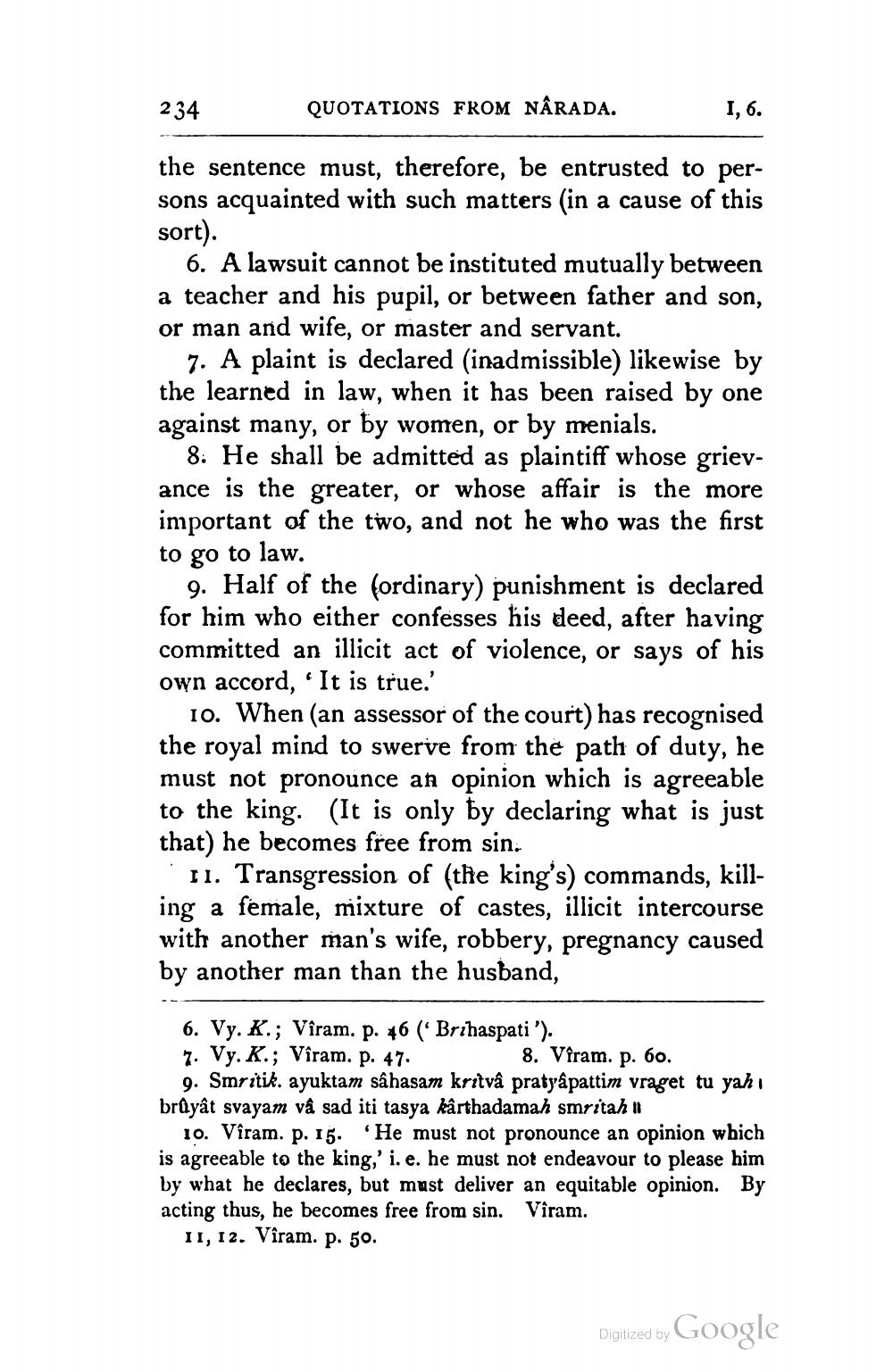________________
234
QUOTATIONS FROM NÂRADA.
I, 6.
the sentence must, therefore, be entrusted to persons acquainted with such matters (in a cause of this sort).
6. A lawsuit cannot be instituted mutually between a teacher and his pupil, or between father and son, or man and wife, or master and servant.
7. A plaint is declared (inadmissible) likewise by the learned in law, when it has been raised by one against many, or by women, or by menials.
8. He shall be admitted as plaintiff whose grievance is the greater, or whose affair is the more important of the two, and not he who was the first to go to law.
9. Half of the fordinary) punishment is declared for him who either confesses his deed, after having committed an illicit act of violence, or says of his own accord, 'It is true.'
10. When (an assessor of the court) has recognised the royal mind to swerve from the path of duty, he must not pronounce an opinion which is agreeable to the king. (It is only by declaring what is just that) he becomes free from sin
II. Transgression of the king's) commands, killing a female, mixture of castes, illicit intercourse with another man's wife, robbery, pregnancy caused by another man than the husband,
6. Vy. K.; Vîram. p. 46 (* Brihaspati'). 7. Vy. K.; Vîram. p. 47.
8. Vîram. p. 6o. 9. Smritik. ayuktam sahasam kritvå pratyapattim vraget tu yahı brûyât svayam va sad iti tasya kârthadamah smritahu
10. Vîram. p. 15. He must not pronounce an opinion which is agreeable to the king,' i.e. he must not endeavour to please him by what he declares, but must deliver an equitable opinion. By acting thus, he becomes free from sin. Vîram.
II, 12. Vîram. p. 50.
Digitized by Google




